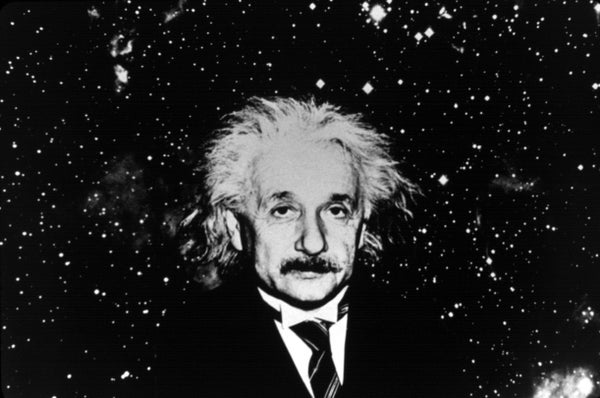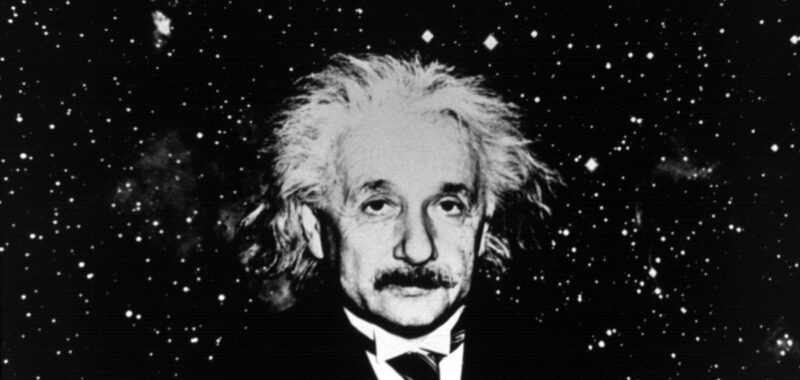Here’s What Einstein Would Tell Trump
Einstein offers a lesson for scientists who are protesting an out-of-control nationalist administration attacking U.S. science today

Everett Collection Historical/Alamy Stock Photo
Germany was once a beacon of science. On January 31, 1933, that all changed, when Adolf Hitler became the chancellor of Germany. In early April of that year, he had dismissed nearly all of the Jewish professors and students in Germany. Nazis publicly burned books written by Jewish authors and others perceived as enemies of the regime. Personal loyalty to Hitler and Nazism became more valuable than professionalism and talent.
America saved from Hitler many top European scholars. One of them, Albert Einstein, authored the general theory of relativity, which explained how mass and radiation warp space and time to produce gravity. He had also felt the weight of the warped politics of his time, facing official derision in Germany, where physicists either denied or downplayed that his physics worked. Nazi publications denounced relativity as “Jewish Physics” and contrasted it to the “German Physics” of the Third Reich. The great majority of German physicists rejected the theory of relativity as “Jewish.” Werner Heisenberg, who was a rare exception in teaching Einstein’s view of physics and labeled a “white Jew” for it, asked none other than Reichsführer Heinrich Himmler for protection in a July 21, 1937, letter. A year to the day later, on July 21, 1938, Himmler granted the protection, allowing Heisenberg to teach relativity theory. But he added a cautionary note about citing Einstein: “I do find it appropriate, though, that in the future you separate clearly for your students acknowledgement of scientific research results from the scientist’s personal and political views.”
Einstein’s example today has much to offer us in the U.S., as scientists once more confront a political administration bent on bending science and scientists to its will. For instance, the attacks on Einstein’s physics feel uncomfortably close to ones today on climate science, derided in April for “exaggerated and implausible climate threats” by the Trump administration’s Department of Commerce, even as Earth’s atmosphere has continued warming. In late March nearly 2,000 members of the U.S. National Academies of Sciences, Engineering, and Medicine protested the Trump administration’s attacks on science. “We all benefit from sciences, and we all stand to lose if the nation’s research enterprise is destroyed,” they warned.
On supporting science journalism
If you’re enjoying this article, consider supporting our award-winning journalism by subscribing. By purchasing a subscription you are helping to ensure the future of impactful stories about the discoveries and ideas shaping our world today.
Einstein stands apart from the views of too many today in speaking out against real threats from a political regime. Many of my fellow scholars want from the government just one thing: to be left alone to do their labor of love. The price for that is to keep their discontent to themselves, hoping that a closed mouth catches no flies.
An Einstein contemporary, the celebrated Dutch mathematician Luitzen Egbertus Jan Brouwer, disagreed with this conformist view of the majority, which held that mathematical theorems are all that matters, as it ignored correct credits to their authors and moral foundations of the profession. In a February 24, 1929, letter to Austrian mathematician Hans Hahn, Brouwer wrote that “it is my opinion that the tiniest moral matter is more important than all of science, and that one can only maintain the moral quality of the world, by standing up to any immoral project.”
Einstein was one of the first public critics of the Nazi regime, which he never ceased to criticize. Today his powerful stance may appear natural and uncontroversial. It was different then. Abraham Flexner, founding director of the Institute for Advanced Study in Princeton, N.J., described in a September 28, 1933, letter to New York philanthropist Felix M. Warburg his pressure on Einstein to stop criticizing the new Nazi regime:
Last night Professor Lefschetz, who holds the highest professorship in mathematics in Princeton University and is himself a Russian Jew, came to see me and asked me if I could not in some way shut Einstein up, that he was doing the Jewish cause in Germany nothing but harm and that he is also seriously damaging his own reputation as a scientist and doing the Jewish situation in America no good.
Flexner continued: “I may add for your private information that I am seriously concerned as to whether it is going to be possible to keep him and his wife in this country.”
In a June 26, 1933, letter, Nobel laureate physicist Max von Laue urged his friend Einstein to abstain from politics: “Here they are making nearly the entirety of German academics responsible when you do something political.”
Einstein summed up his position in his reply to von Laue. His words called on scholars to leave the ivory tower and assume responsibility for affairs of the world, to be counted in the struggle for truth and justice:
I do not share your view that the scientist should observe silence in political matters, i.e., human affairs in the broader sense…. Does not such restraint signify a lack of responsibility? Where would we be had men like Giordano Bruno, Spinoza, Voltaire, and Humboldt thought and behaved in such a fashion? I do not regret one word of what I have said and am of the belief that my actions have served mankind.
Some of the European scholars saved by America returned to Europe after the war. They thought that America was a wasteland of culture. It was not. But now that the Trump administration has been firing thousands of scientists and cutting funding for scientific research, America is in danger of becoming a wasteland of culture and science indeed.
What would Einstein tell Trump today? Einstein would urge Trump to strive for high morality in his actions, as the scientist so eloquently presented in a 1950 letter to a minister in Brooklyn, N.Y.:
The most important human endeavor is the striving for morality in our actions. Our inner balance and even our very existence depend on it. Only morality in our actions can give beauty and dignity to life.
Rather than warping American ethics, as well as science, the Trump administration should heed that wisdom, and those of scientists protesting today. Warping science to conform to one’s politics will not change reality and will only ruin the nation that embarks on this folly.
This is an opinion and analysis article, and the views expressed by the author or authors are not necessarily those of Scientific American.

